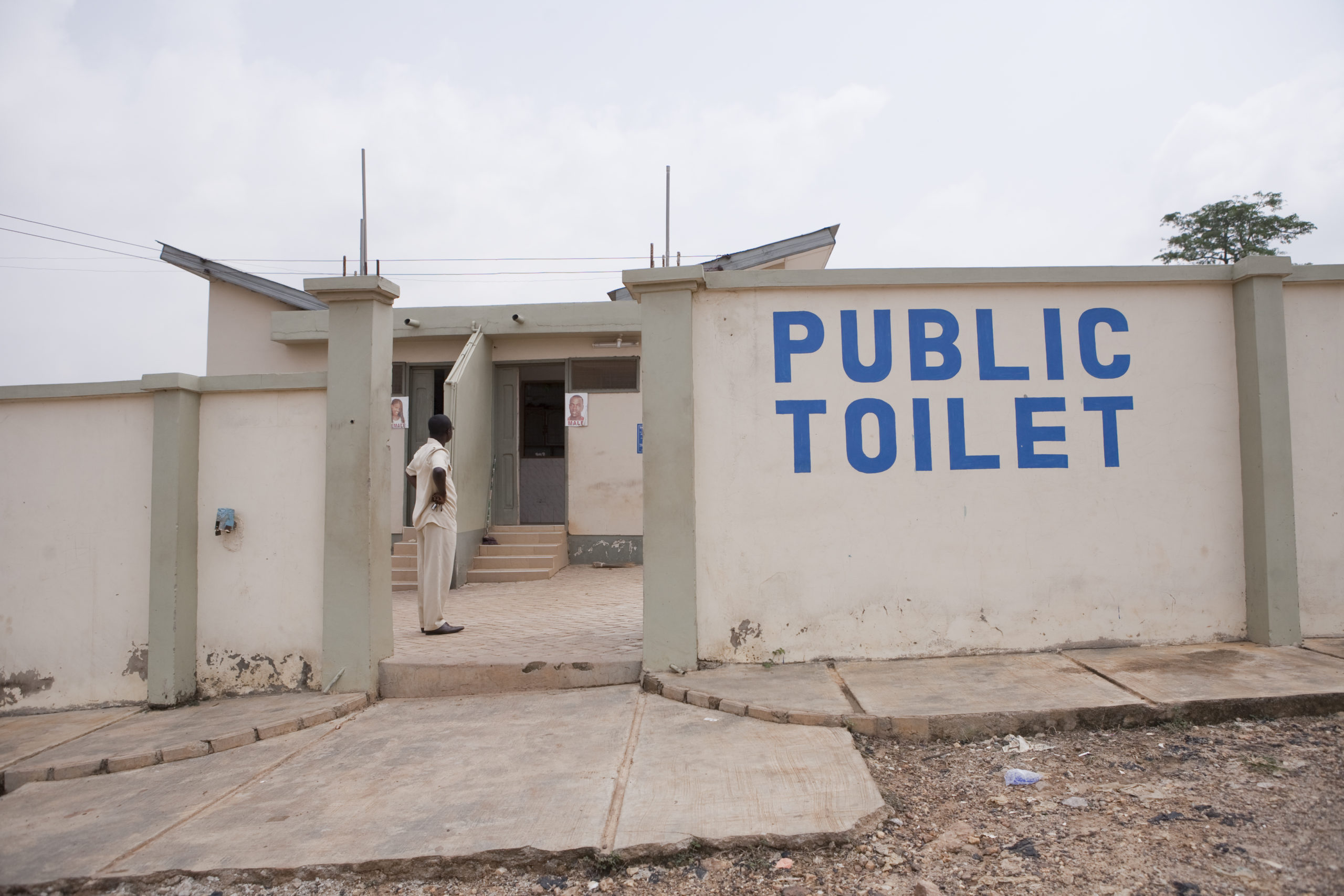World Toilet Day: A call for action on sanitation
Today, we join the global community in observing World Toilet Day, an annual event established by the United Nations to underscore the vital importance of toilets and recognise access to sanitation as a fundamental human right. This year’s theme: “Sanitation for Peace” resonates deeply, especially considering the staggering number of people worldwide who lack proper […]

A newly built public toilet in Kumasi, Ghana, pictured on January 24, 2011, helps contribute to a higher level of cleanliness and sanitation in the area. Most public toilets, like this one, are built by private businesses and charge a small fee.
Today, we join the global community in observing World Toilet Day, an annual event established by the United Nations to underscore the vital importance of toilets and recognise access to sanitation as a fundamental human right. This year’s theme: “Sanitation for Peace” resonates deeply, especially considering the staggering number of people worldwide who lack proper sanitation facilities.
A toilet should be a sanctuary of peace, safety, and dignity. Yet, for over 1.5 billion people around the globe, this basic necessity remains out of reach. According to the World Health Organisation (WHO), 419 million people still defecate in the open, with 48 million of them residing in Nigeria, Africa’s most populous nation. This alarming figure has placed Nigeria with the world’s highest open defecation rate and therefore highlights the urgent need for improved sanitation infrastructure.
There is an undeniable link between poor sanitation and diseases. Inadequate sanitation breeds cholera, which disproportionately affects children under five. Cholera, an acute intestinal infection, spreads through contaminated water and food, wreaking havoc on communities with poor sanitation. It is also why Nigeria faces annual cases of cholera disease that affect thousands and claim many lives. This year alone, between January and September 2024, the Nigerian Centre for Disease Control (NCDC) reported 10,837 cholera cases and 359 deaths, which the agency described as a 239 per cent increase in fatalities compared to the previous year.
To address persistent cholera outbreaks, Nigeria must tackle open defecation, which is more rampant in the hinterlands, where basic amenities such as water and toilet facilities are scarce. Unfortunately, with growing migration to cities and a rise in homelessness, increased open defecation is recorded in urban areas due to the lack of public and mobile toilet facilities.
- Sit-at-home order: Gunmen kill vigilantes, burn vehicle in Anambra
- Tinubu arrives Brazil for G20 Summit
In the past, several state governments had announced plans to provide public and mobile toilets in markets, parks, and other public spaces. However, despite these pronouncements, official records reveal that only 135 out of Nigeria’s 774 local government areas have been certified open defecation free. This highlights a significant gap between policy announcements and actual implementation.
But Nigerians have not always displayed this uncultured behaviour of open defecation. Once upon a time, sanitary inspectors were responsible for monitoring and enforcing health and hygiene standards across communities. Popularly called Duba-Gari in northern Nigeria, Wole-Wole in the south West, and Nwaole-ala in the South East, these sanitary inspectors played a crucial role in maintaining public health and ensuring that sanitation practices were upheld. They carried out this responsibility with a sense of passion and dedication, and their presence instilled a sense of responsibility among Nigerians. Now it is not clear what role they play in the scheme of environmental health standards. Perhaps it is time to consider reviving sanitary inspectors and task states and local governments with enforcing sanitation regulations.
Last Friday, the Minister of Water Resources and Sanitation, Prof. Joseph Utsev, revealed that Nigeria needs an additional 11.6 million toilets to achieve its 2030 Open Defecation Free (ODF) target. He acknowledged funding challenges, stating that an annual budget of N10 billion is required to meet this goal. The minister also announced the re-launch of the “Clean Nigeria: Use the Toilet Campaign” aimed at fostering collaboration among state governors, community leaders, civil society organisations, and development partners. He said Vice President Kashim Shettima will lead the event today, coinciding with World Toilet Day.
We hope that the re-launch of the “Clean Nigeria: Use the Toilet Campaign” will not be turned into a ceremonial event marked by fanfare rather than meaningful action. This is because achieving ODF status goes beyond merely constructing toilets but ensuring access to and proper use of these facilities. Water, sanitation, and hygiene (WASH) must be integrated into our national agenda if we intend to achieve ODF status by 2030. Therefore, the Nigerian government, especially at the state and local government levels, must make concerted efforts to provide water and sanitation for all. They should release funds for toilet constructions in schools, markets, parks, and other public spaces. They should equally ensure that the facilities have access to clean water.
We all have a role to play. Parents and guardians must instil values of cleanliness on their children and wards while traditional, community, and religious leaders should use their platforms to educate and enlighten Nigerians on the importance of proper sanitation. We need to return to the old values where cleanliness was next to godliness. As we observe World Toilet Day, let us commit to making tangible progress in improving sanitation for all Nigerians. It is time for action, not just words.
